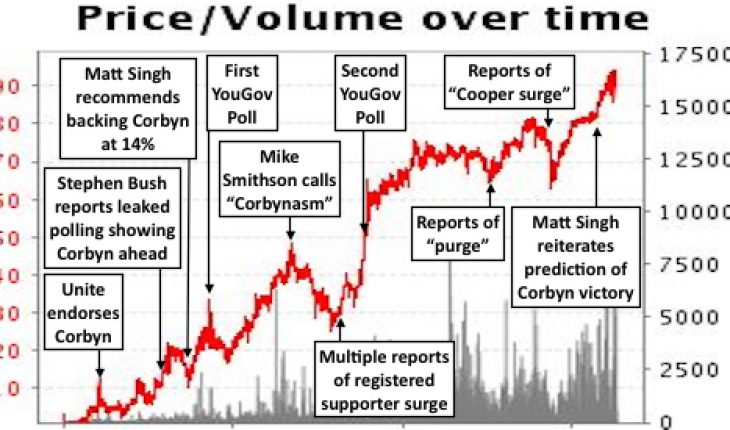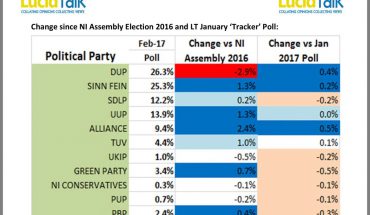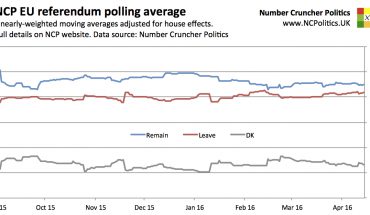So, it's finally over and Jeremy Corbyn has pulled off a sensational Labour leadership victory. By lunchtime on Saturday, the result had become widely expected, but that had not been the case all along. Ever since Stephen Bush first reported leaked private polling showing Corbyn ahead, there has been endless speculation about the accuracy of the polls.
It may seems like the polling failure at the general election is something that gets brought up whenever polling numbers seem too extraordinary to be true, but that is what people like to do anyway – remember how the SNP couldn’t possibly win in places like [take your pick of Scottish seat].
In July this site tipped Corbyn at 14% and has consistently highlighted the lack of evidence in any data that the polls were wrong. Last month I said on TV that, given the evidence from the selectorate composition and some of YouGov’s methodological choices, the risks were slightly to the upside.
And so it proved. But make no mistake, this was a great performance by YouGov and they deserve a lot of credit for doing it and doing it well. Their reweighting of the poll to the final selectorate had Corbyn on 57%, compared with the 59.5% result. Big congrats to Laurence Janta-Lipinski and everyone there. It should also be pointed out that the polling for Labour’s London mayoral nomination was not, as some have suggested, wrong. No polling was done of Labour’s London selectorate (no pollster is currently able to do that), only of Labour voters in London.

So it turns out that despite the briefings, the Cooper surge never materialised, and reports of low turnout were, as expected, nonsense. And for all the talk of shy moderates, Liz Kendall undershot her polling by 2.5 points. Corbyn’s first round victory meant that lower order preferences weren’t counted. Based on Kendall’s result, if her 2nd preferences had split as the August poll suggested, it would be a virtual dead heat between Cooper and Burnham in round two.
Looking at the detail provided today by YouGov, some interesting points emerge. We already knew that Corbyn won among affiliated and registered supporters (with 84% of the latter) and with only a fraction under 50% of the full membership, would have done so with them too. But we now know within full members, Corbyn won comfortably among those that joined since the 2015 election and would also have won among those that joined during the 2010-2015 parliament. But even among pre-2010 members, the Islington North MP got 44% of first preferences, which would probably have been enough, given exhausts (abstentions on lower-order preferences) and a handful of percentage points of transfers.
It also appears that 40% of registered supporters, 24% of affiliates and even 9% of members didn’t vote Labour at the general election, with the Greens having been the main beneficiaries in May in each case, or the main source of outsiders, depending on your viewpoint.
I’ve also put together a chart showing the closely-watched Betfair market over time. The main drivers seem to have been polling (public and private), reports on the selectorate composition, and NCP analysis!






